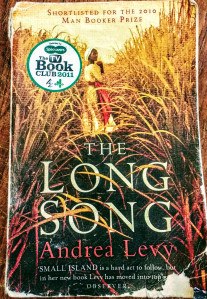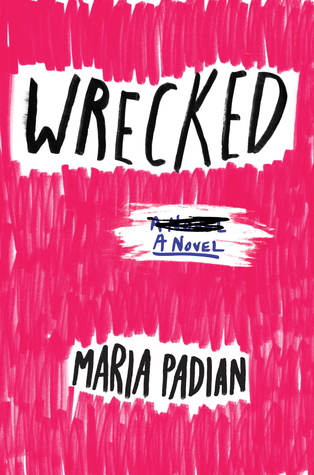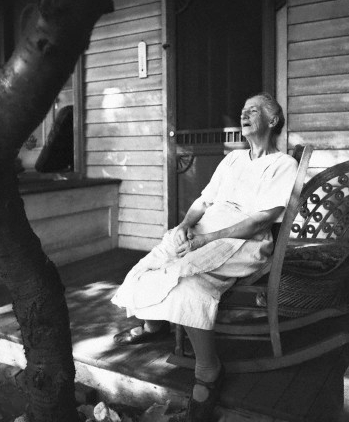
Author: Andrea Levy
Finished on: 26 March 2017
Where did I get this book: Given to me by a friend
This is the 2010 follow-up to Levy’s spectacularly successful Small Island.
Levy has said that she didn’t intend for The Long Song to be a book about slavery, but rather a story about believable people and the lives they lead, with slavery and its abolition as the backdrop. People living through huge historical events are still people, with their own interpretations, misunderstandings and even disregard for the importance of what they are witnessing.
It would be difficult to overstate quite how successful Levy is in accomplishing this aim. Or quite what a magic trick she pulls off, in that precisely because she treats slavery as a backdrop rather than a focus, she manages to make it more vivid than almost anything else I’ve ever read. This book is stunning.
The Long Song is the life story of Miss July, who is born in the last decades of slavery in Jamaica. Levy had me at hello with the framing of her narrative; I am a sucker for a book which contains the exposition of how it came to be written down. The last book I read that did this so well was His Bloody Project. Despite being different in almost every other way (except brilliance), they have this in common. It is enormously effective in drawing the reader into the heart of the matter.
Miss July is writing her autobiography at the request of her son Thomas, who is a successful printer. And at several points she interrupts her own story to tell us about Thomas’s interference, and their arguments about what she should include and what she should leave out. We get into almost The Life Of Pi, we all have the power to create our own story, territory. But with just enough emotional authenticity showing through any cracks, that we trust Miss July’s honesty.
Miss July, while rarely likeable, is a superb creation. She is stuck squarely in the middle of many of the apparently binary set-ups of the time. Her mother is black and her father is white; she starts life working in the fields and then is taken in to work in the house; she has a relationship with free black man and then a white plantation owner. The beauty of it all is that while she acts as a vehicle for telling all these different stories, she never feels less than 100 percent real.
The Long Song is desperately moving, and all the more so for never being sentimental. And the questions it explores about race, class and how people can dehumanise others when it suits them, are profound. Some of the most percipient sections are those following the abolition of slavery, where the characters all struggle with what will come next and how to negotiate new power and financial arrangements between groups of people who are still horrifically unequal.
This book takes us to a place where many of the truths we take for granted about the relationship between people who work, and those they work for, are thrown open. Why are things the way they are? What is freedom? And while the abolition of slavery was clearly a very good thing, was what followed really much better?
The tone of the book is never as heavy as these themes would suggest though. Such is Levy’s skill that all of this is accomplished in a book that, despite leaving you crying and questioning everything, is entertaining and often funny. Absolutely outstanding.
Advertisements Share this:




